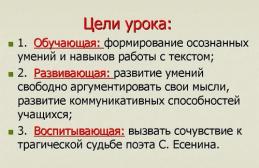Nowadays it is very difficult to find cosmetics that do not harm our hair and skin. Increasingly, women began to study in more detail the composition of the necessary product and avoid such a component as demethicone, which means that the composition contains silicone. Why is it harmful to hair? Today we will tell you about all its advantages and disadvantages, and also display a list of shampoos without it.
What does "shampoo without silicone" mean?
Shampoos without chemicals are very difficult to find; you can only get them on order or create them yourself. But there are still shampoos without silicone and parabens on store shelves, a list of which will be presented below. This is a big breakthrough in cosmetology, and now it is possible to cause minimal damage to your hair, at least when washing your hair. So, probably everyone knows about parabens and sulfates. What is silicone and why is it added to shampoos?
The first thing I would like to note is that silicone in shampoo is not a piece of rubber, but a substance that allows you to give the product greater thickness. How is it useful and harmful for hair?
- Added to shampoo to thicken.
- To add volume.
- For shine.
- For thermal protection during styling.
- Seals split ends and hair damage along the entire length.
You ask: “Is this bad?” No, it's just wonderful, but you can't use this shampoo all the time. Silicone creates a film on the hair, “sits” tightly between the scales, and the curls are simply deprived of oxygen. As a result, you get dry, lifeless, faded hair, from which precious hair will begin to fall out.
So, shampoos without silicone mean free breathing of hair, its health and strength.
"Chemical" shampoos
Chemical ingredients added to detergents have a detrimental effect on the scalp and the lipid barrier of the hair is disrupted. Because of this, the curls look unattractive, the hair begins to fall out, split, break, and the hair becomes dull and dry.
Sulfates and parabens, among other things, have a detrimental effect not only on the hair. They tend to accumulate under the skin and then penetrate into the blood, which leads to serious health problems.
Women in the comments claim that it perfectly washes their hair and scalp, it smells like herbs, but not harshly. All consumers are pleased with the affordable price of the product; it averages 100-150 rubles.
Logona
Logona brand silicone-free shampoos are produced in Germany and have become a success among the fair sex all over the world.
The brand offers all the necessary hair care products, and all of them are therapeutic and preventive. If you decide to try this brand of shampoo on yourself, then pay attention to the manufacturer’s recommendations. There are products to eliminate excess oiliness or dryness of hair, to combat dandruff, and to restore damaged and brittle curls. All compositions vary, but have one thing in common: the absence of sulfates, parabens and silicone.
I welcome everyone.
Today we are talking about shampoos.
You know, now there is such a flow of information about pollution environment, pesticides and nitrates in products, sulfates and parabens in cosmetics, that periodically you shudder and rush in search of something life-saving, natural and, if not useful, then at least not harmful.
After going to yet another hairdressing salon, which I haven’t been able to handle for three years now, looking sadly in the mirror, I think that nothing but organically-natural-natural products can correct the hairdresser’s work after the next coloring. And once again I buy a “magic” hair shampoo.
Although, I realized a long time ago that it would be more correct to look for a “magic” hairdresser (of whom, by the way, I have changed quite a few), I still don’t give up the hope of finding a super hair product. And first, let’s try to find such a product among organic hair shampoos.
It must be said that there are now a lot of shampoos, conditioners and conditioners called the fashionable word “organic”. I have compiled a neat list of those that I plan to try, and today I will do a short review of those that have already been tried.
To begin with, without delving into the chemical jungle, let’s find out what the name “organic” means. First of all, this is the name for cosmetics that do not contain aggressive “chemicals”: parabens, silicones, SLS, petroleum products, preservatives and ingredients of animal origin. And the organic ingredients it contains are ecological products grown naturally, without the use of chemical fertilizers.
I wanted to dwell in more detail on the harm caused to us by the aggressive substances contained in shampoos, but the result was not an article, but a whole opus-description of chemical horror stories. Therefore, we’ll get scared next time, but today let’s see how to recognize organic shampoo.
The only thing I will focus on from “chemistry” is sulfates - SLS. The last thing I would like to see in my hair shampoo is that, in addition to various harmful effects on the body, they have a very bad effect on the very beauty of the hair. Sulfates contribute to their loss, destroying the bulbs, which can cause dandruff. And most importantly, sulfates dry out hair making them brittle and split ends, which is the number one problem for me now.
I already mentioned sulfates in. That is, these chemical ingredients are widely used both in household chemicals and in cosmetology. But if, knowing about their content in household chemicals, we can protect the skin of our hands by wearing gloves, then when washing our hair, a direct effect on the skin and hair is naturally inevitable.
That's why today we are looking for sulfate-free shampoos. And where to look for them if not in organic cosmetics. So, let’s look at what signs we use to recognize organic shampoos.
1. Organic shampoos do not have a strong aroma, since they do not contain synthetic fragrances, and they can't be unnatural bright color, since they do not contain synthetic dyes.
2. Organic shampoos not too much foam, due to the absence of aggressive surfactants, in particular sulfates. 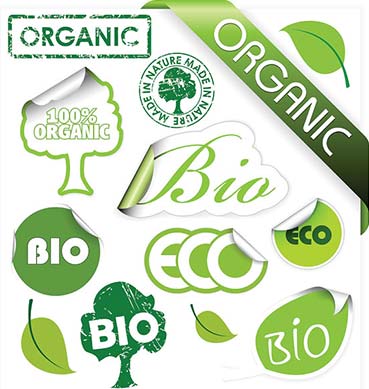
3. On packaging of organic shampoos there are badges confirming their naturalness and the absence of harmful chemicals, as well as signs that these shampoos have not been tested on animals.
The icons can look different, for example, on my shampoo bottles in round stamps it is written: “Does not contain parabens”, “European certificate of Eco Bio cosmetics”, “Contains organic ingredients” (contains organic ingredients), well, or other options.
4. Organic shampoos have a mild detergent base as a detergent base, and their composition will include safe ingredients, such as betaines, mono- and diglycerides of fatty acids, and preservatives are replaced, for example, with sorbic or citric acid (Sorbic Acid, Citric Acid).
5. The composition of organic shampoos is always enriched with natural plant extracts and essential oils, which is also indicated in the composition.
6. In organic shampoos no animal ingredients and they not tested on animals, like regular shampoos.
7. In addition, usually organic shampoos are produced in packaging made from recycled materials, which makes them environmentally friendly.
Although in any case, organic cosmetics will contain emulsifiers, preservatives, and other chemically produced additives. It is clear that shampoos containing only oils and herbal decoctions will no longer be considered shampoos.
But let's move on to specific examples. As agreed, we will choose shampoos without harmful lauryl and laureth sulfates, let’s see what replaces them and how safe the other components of the shampoos are for hair.
This time I will arrange the shampoos depending on the price, in ascending order.
1. Shampoo “Granny Agafya’s Recipes.”
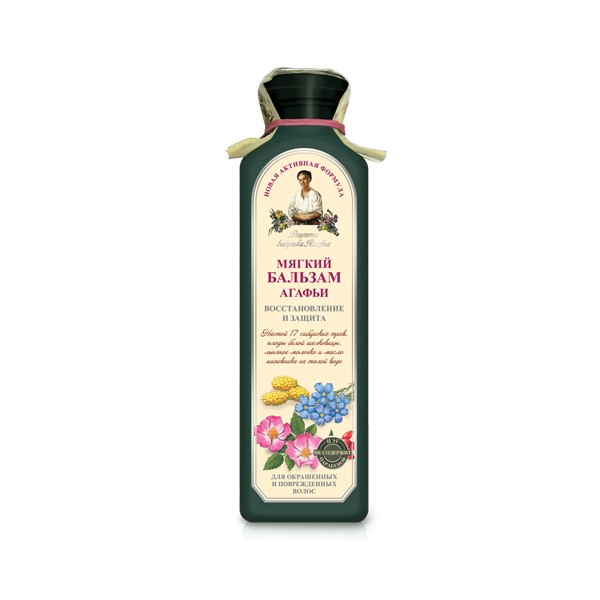
Manufacturer: First Solution, Moscow.
The cheapest shampoo. Cheap, not even in comparison with the others included in the review, but simply on its own. Price: $1.60.
Where to buy: in stores specializing in cosmetics. Although it must be said that these shampoos are imported here spontaneously, and it is not always possible to buy them.
I bought it, tempted not by the price (most often cheap products make me wary - if there are good products, then why are they so cheap?), but by the absence of aggressive sulfates in the composition. I have the “Restoration and Protection” shampoo.
What the manufacturer says: that the shampoo is made on the basis of melt water, which conditions the hair, does not contain synthetic fragrances, fatalates, sulfates and parabens that are harmful to hair, but is infused with as many as 17 (!) Siberian herbs, and thanks to this composition it provides safe, effective and natural hair care . Restores hair health, returns softness, shine, elasticity and strength.
Let's look composition of shampoo “Granny Agafya’s Recipes”: melt water, infusion of 17 Siberian herbs (herbs, by the way, are listed in a separate paragraph), magnesium laureth sulfate, cocamide Dea, cocamidopropyl betaine, coco-glucoside, Glycol distearate, Cocamide MEA, Laureth-10, glyceryl oleate, sodium chloride, white extract mulberries, flaxseed milk, rosehip oil, vitamin B5 , guar gum, citric acid, perfume, caton.
What does the consumer get?: Let’s get straight to the composition.
Magnesium laureth sulfate- this is a type of surfactant that I would not like to see in shampoo, but it is much softer than sodium lauryl and laureth sulfates, instead of which it performs a cleansing function without irritating the skin and eyes. Has a high safety factor.
Cocamide DEA - but this is not a very good ingredient, belonging to the class of surfactants. This is a milder cleaner, but contains nitrosamines, which are carcinogenic substances. Able to foam in hard water, regulate pH levels, prevent the formation of static electric charge in hair, soften hair, and suppress the aggressive effects of acidic components of water.
Cocamidopropyl betaine- a soft co-surfactant, is added when the manufacturer wants to create a high-quality and safe product, and in addition to the base surfactant, to reduce its irritating effect, introduces a co-surfactant into the composition of the product, which in this case is cocamidopropyl betaine.
Opinions about him vary. The American Contact Dermatitis Society has recognized it as a low-allergenic product, which has a reduced drying effect and practically does not irritate the skin. Other sources label it with a “danger” icon, stating that it irritates the mucous membranes of the eyes. And in the Spanish Laboratory of Experimental Dermatology, this substance was recognized as harmful. During experiments, it was rubbed into mice, which then produced bad offspring. Therefore, pregnant women should not use products containing this ingredient.
Cocoglucoside is another surfactant, but very mild, for cleansing skin and hair, for foaming and as an emulsifier. It is obtained from dried coconut meat and fruit sugar. Smoothes the hair structure and adds volume. Judging by the volume of hair after washing, there is not too much cocoglucoside in the shampoo :)
Glycol distearate- emulsifier, humectant and softener, viscosity regulator. Added to clear cosmetic products to make them impervious to light, adding a "pearl" effect. May clog pores and cause acne.
Cocamide MEA - added to emulsions to prevent separation of components in cosmetics. May form aggressive carcinogenic nitrosamines.
Laureth-10 is an emulsifier. Helps immiscible components mix with each other (such as oil and water). May contain harmful contaminants that may cause cancer.
Glyceryl oleate is an emollient, a substance that is added to soften the skin. In rare cases, it can cause skin allergic reactions and contact dermatitis.
Sodium chloride – thickens the water part of the cosmetic product. Not harmful.
White mulberry extract- removes toxins, prevents age-related changes, has an antibacterial and anti-inflammatory effect.
Flaxseed milk - returns softness and shine to hair.
Rosehip oil— gives hair shine, restores damaged structure, nourishes hair follicles.
Vitamin B5 is a synthetic vitamin that is suitable for all hair types and has a beneficial effect on it, helping it grow.
Guar gum is a useful resin that acts as a thickener.
Citric acid- a natural preservative and antioxidant that normalizes the pH balance of the skin. Neutralizes excess acid or alkali that appears in cosmetics after adding other components. The right acid, which is safe to add to cosmetics, replacing artificial preservatives.
Perfume is a flavoring agent about which the manufacturer did not provide any details.
Preservative katon- Prevents the growth of bacteria and fungi. It is an allergen and can irritate the skin, but is considered safe in small concentrations. It is necessary to wash it off, but, in fact, we wash off the shampoo without fail.
General safety factor shampoo - 79%.
Conclusion: If you look at the composition, it seems terrible, there’s a lot of chemistry, but it should be noted that all surfactants are not aggressive, and most of the ingredients do not necessarily cause a side effect. Therefore, we can say that the composition is not bad, due to the replacement of surfactants with soft ones. As for the rest, in principle, it’s an ordinary shampoo. I won’t say that I immediately wanted to buy a second bottle, but I won’t leave a negative review either.
Feels like it rinses your hair well, even rinses off oil masks efficiently. Not very economical, as it does not foam very much due to the low sulfate content. For those who care about the price, it will be even more suitable - it is very affordable, especially for such a good composition.
Rating: 4/4.
2.Sulfate-free shampoo “Natura Siberika” for oily hair “Volume and balance”.
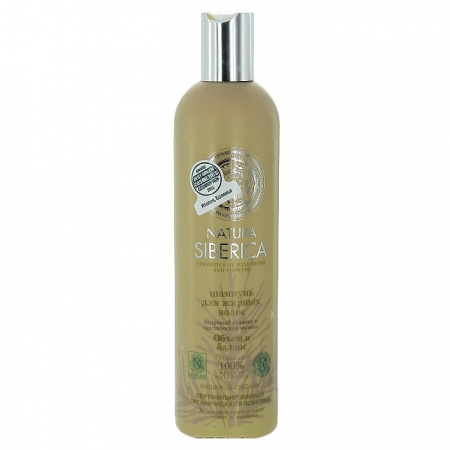
Manufacturer: Natura Siberika LLC, Moscow.
Since my hair at the roots gets oily quickly, I periodically use shampoos for oily hair. So now I bought a couple to try - shampoo and conditioner for oily hair “Volume and Balance”.
Price: about $4.5.
Where to buy: again, in stores that sell cosmetics, and this shampoo is easier to find than Grandma Agafya’s Recipes.
Right on the shampoo bottle, on all sides, the manufacturer wrote: “Certified organic cosmetics. Free of SLS, SLES, PEG, mineral oil, silicones and parabens." Okay, let's see what's in the ingredients. And the ingredients are printed in such an unreadable font that by the time you find out what’s in there, you might even lose your eyesight. This is quite strange, because the manufacturer should be proud of the natural masterpiece he has created.
Ingredients: First comes a huge list of plant extracts: dwarf cedar, Arctic raspberry, Siberian rowan, Siberian fir, Asian yarrow, nettle, milk thistle, oak bark, elecampane, Roman chamomile, soapwort, sea buckthorn oil.
I was amused that next to each plant there is a footnote explaining that the plant extracts are organic. I wonder what options nettle, oak or chamomile might have? Artificial chamomile flowers, synthetic oak bark?
After the “natures of the product” come the “chemical” ingredients; let’s look at those that were not found in “Agafya”.
Lauryl glucoside - to increase viscosity. A mild surfactant that is used in intimate hygiene products and baby shampoos.
Sodium cocoyl is also a mild surfactant. Used as an emollient, cleanser and antioxidant.
Betaine from Siberian cedar oil- a derivative of Siberian cedar oil.
Betaine from Altai sea buckthorn oil- a derivative of Altai sea buckthorn oil.
Glycerin - obtained from vegetable oils, an excellent moisturizer. Draws moisture from the air, thereby saturating the skin with it.
Guar hydroxypropyltrimonium chloride — a synthetic component obtained from guar gum, which is extracted from tropical trees growing in India. Antistatic, film former, viscosity regulator, which gives hair volume and makes combing easier after washing.
Sodium chloride is a thickener. In high concentrations it can cause irritation to the skin and mucous membranes of the eyes. Here he is almost at the bottom of the list, so irritation is hardly possible.
Synthetic alcohol- preservative and solvent. May have an irritating effect if it is at the beginning of the list.
Dihydroxyacetic acid- a preservative, plus has an antifungal and bactericidal effect. Does not irritate the skin and mucous membranes, does not cause negative changes in the body.
Sodium benzonate is an antiseptic that inhibits bacterial growth. It is considered a relatively safe preservative in cosmetics.
Potassium sorbate is a food additive that belongs to the group of preservatives.
CI 75810 is a green dye. Easily dissolves in oils and fats.
Parfum - substances that give cosmetics a pleasant smell. May cause skin irritation and allergies.
And already at the very end of the composition we see essential oils. But this is not because they were sorry to add them, it’s just that usually the content of essential oils in cosmetics is tenths of a percent; accordingly, there are few of them in the composition of the product, which is why their names are indicated at the very end of the list of ingredients. This:
Geraniol (Geraniol) – aromatic substance, colorless liquid with an odor reminiscent of a rose.
Limonene is a safe flavoring produced synthetically. Like other fragrances, it can cause allergies, and an allergy is an atypical reaction of the immune system that sometimes occurs even to the most harmless substances. Limonene itself does not have any particular allergenicity.
Linalool (Linalool)- fragrance limited for use. In cosmetics, linalool is oxidized under the influence of oxygen and fatty acids, and its oxidation produces chemical compounds that can cause allergies. The antioxidants contained in the product along with linalool should slow down its oxidation, but allergenic oxides are formed when the temperature is violated, the packaging is sealed, and the expiration date of the cosmetics.
This shampoo has safety factor 89%, which is certainly very good.
Personal impressions: The shampoo has a pleasant consistency, has a wonderful subtle smell (it seems to me that floral and citrus notes dominate), it washes the hair well, although it does dry out the hair a little. I won’t say that he turned my oily hair into normal hair. The shampoo from this series for all hair types “Volume and Care” is already waiting to be tested, I will try it too, since choosing a sulfate-free shampoo for your hair is only possible by testing.
Rating: 4/4.
3. Strengthening shampoo “Biotin B-Complex Therapy”.
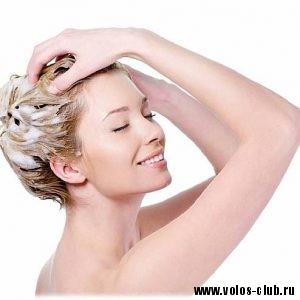
This is also a very, very natural shampoo, in which, according to the manufacturer, the composition is 70% organic. Naturally, the bottle states that the shampoo does not contain parabens, heavy preservatives, synthetic dyes or fragrances, fatalates, sodium lauryl sulfate or laureth sulfate.
The composition is so huge that I don’t really know how to fit it in. But I'll try. Compound:
Aloe Barbadensis Leaf Juice ( aloe vera juice) , Aqua ( water), Decyl Glucoside ( non-ionic soft surfactant), Sodium Coco-Sulfate ( Surfactant), Coco-Glucoside ( Surfactant), Sorbitol ( humectant, often used instead of glycerin), Xanthan Gum ( emulsifier and thickener), Avena Sativa (Oat) Kernel Extract ( oat extract), Calendula Officinalis Flower Extract ( calendula extract), Chamomilla Recutita (Matricaria) Flower Extract ( chamomile extract), Citrus Aurantium Bergamia (Bergamot) Fruit Extract ( bergamot extract), Daucus Carota Sativa (Carrot) Root Extract ( wild carrot oil), Persea Gratissima (Avocado) Fruit Extract ( avocado fruit extract), Rubus Idaeus (Raspberry) Fruit Extract ( raspberry extract), Serenoa Serrulata Fruit Extract ( saw palmetto extract), Solanum Lycopersicum (Tomato) Fruit/Leaf/Stem Extract ( tomato extract), Styrax Benzoin Resin Extract ( benzoin resin), Tanacetum Vulgare Extract ( tansy extract), Canarium Luzonicum Gum Nonvolatiles ( extract Elemi tree resin), Cedrus Deodara Wood Oil ( Himalayan cedar oil), Cedrus Atlantica Bark Oil ( Atlas cedar oil), Citrus Aurantifolia (Lime) Oil ( lime oil), Citrus Aurantium Dulcis (Orange) Peel Oil ( orange peel oil), Citrus Grandis (Grapefruit) Peel Oil ( grapefruit zest oil), Citrus Limon (Lemon) Peel Oil ( lemon zest oil), Copaifera Officinalis (Balsam Copaiba) Resin ( Copaifera officinalis resin), Coriandrum Sativum (Coriander) Fruit Oil ( coriander oil), Eucalyptus Citriodora Oil ( lemon eucalyptus oil), Eucalyptus Globulus Leaf Oil ( Eucalyptus globulus oil), Ferula Galbaniflua (Galbanum) Resin Oil ( ferula oil), Geranium Maculatum Oil ( wild geranium oil), Helianthus Annuus (Sunflower) Seed Oil ( sunflower oil), Lavandula Angustifolia (Lavender) Oil ( lavender oil), Mentha Piperita (Peppermint) Oil ( peppermint oil), Pogostemon Cablin (Patchouli) Oil ( patchouli oil), Rosmarinus Officinalis (Rosemary) Leaf Oil ( rosemary oil), Simmondsia Chinensis (Jojoba) Seed Oil ( jojoba oil), Zingiber Officinale (Ginger) Root Oil ( ginger oil), Babassu Oil Polyglyceryl-4 Esters, Bisabolol ( bisabolol natural), Citric Acid ( citric acid), Hydrolyzed Wheat Protein ( wheat protein), Inulin ( inulin), Sodium Sulfate ( sodium sulfate, surfactant), Tocopheryl Acetate ( vitamin E), Alcohol ( alcohol), Benzyl Alcohol ( preservative), Potassium Sorbate ( preservative), Sodium Benzoate ( preservative), Limonene ( fragrance), Linalool ( fragrance).
Among the harmful substances, we can note: Linalool - a fragrance that we have already seen in Natura Siberica. Benzyl Alcohol, which can cause increased sensitivity of the skin and the body as a whole, but only if it is one of the main ingredients, which is not in our shampoo.
If you take the time to read the entire composition, you will be surprised to see that there really are no parabens, no fatalates, and a modest set of surfactants, and the entire composition is almost entirely filled with oils and plant extracts. And as soon as he rinses his hair? So I didn’t wash it.
Yes, the composition is gorgeous, and after washing my hair became the same as after washing with toilet soap (there were such experiments in my practice). If you have also tried to wash your hair with soap, then you know that it turns out dull, not smooth and as if covered with a film that is not very pleasant to the touch.
They say that if you constantly wash your hair with soap, it gets used to the unusual composition and gradually becomes shiny and healthy. Perhaps the same situation is with Avalon, but I don’t have the patience to wait for when this will happen or if it will happen at all.
And it’s almost impossible to wash off oil masks from your hair with this shampoo. Although this is natural, there are no super-washing chemicals.
I would like to emphasize that this is my personal impression and perhaps you and Avalon will have a completely different story, since a huge number reviews about him are laudatory, but this just doesn’t happen.
Manufacturer: Avalon Organics, USA.
Safety factor - 89%, as good as Natura Siberica.
Grade : 3/5
Price: This organic will cost $8.47.
Where to buy: Avalon Organics, Biotin B-Complex Therapy at iHerb.com.
Of all these shampoos, I liked Natura Siberika the most because of the condition of my hair after washing it. Long-term use of sulfate-free shampoos really has a beneficial effect on hair, it becomes less dry and, accordingly, becomes less brittle and split. Therefore, I continue my experiments and wait for the next bottles of organics to arrive.
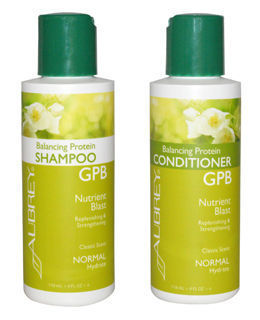
To summarize, we can say that sulfate-free shampoos manifest themselves differently for everyone, the effect depends on the shampoo and on the characteristics of your hair and scalp. Therefore, you will have to select them by trial and error. But for the sake of hair health and beauty, it’s probably worth a try.
P.S. You can read reviews of other shampoos from the organic series on my beauty blog. No matter how hard I tried, I couldn’t get along with articles about cosmetic products and everyday articles :)
class="relatedtitle"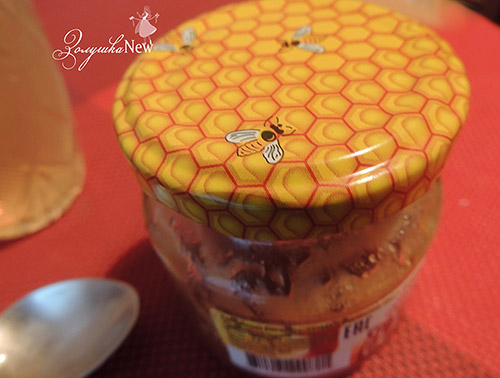
The huge range of modern hair care products can confuse anyone. Whatever is on store shelves, the shampoos presented there promise to cope with almost any problem, be it dry and brittle ends or the formation of dandruff. But are all these remedies safe and as effective as advertising promises? It's safe to say that this is not always the case. The fact is that most manufacturers use chemicals that are very harmful to the health and structure of our curls; these elements include sulfates.
IN lately All more specialists and ordinary women are concerned about the problem of choosing sulfate-free shampoos, which are gaining popularity at a tremendous pace. Is this choice justified? What are sulfates and why are they harmful to hair strands? What brands make sulfate-free shampoos?
Many shampoos and other hair and body care products contain sulfates, surfactants obtained by processing petroleum products. These components began to be actively used after World War II, as they are inexpensive and can significantly reduce production costs. In addition, sulfates are responsible for the formation of lush foam and the breakdown of fat, and therefore contribute to better cleansing.
It would seem that these are all advantages, but sulfates perfectly corrode not only fat, but also every hair, destroy the water-lipid layer on the scalp, leading to its dryness and dehydration. These substances contribute to the appearance of itching on the skin, dandruff, flaking, dermatitis and other problems. With prolonged exposure to sulfates, hair loss occurs, strands become unruly, brittle and dry, and allergic reactions to harmful chemicals occur. Also, as a result of numerous studies, it has been proven that these substances are toxic, can accumulate in the tissues and organs of our body, and therefore affect overall health.
How to choose a sulfate-free shampoo

How can you find out if your favorite shampoo contains similar harmful components? How to choose a safe hair product? First of all, carefully read the label and look for abbreviations indicating the presence of sulfates in the composition, or their full names, which include:
- SLS (sodium lauryl sulfate) - sodium lauryl sulfate
- SDS (sodiumdodecylsulfate) - sodium dodecyl sulfate
- SLES (sodium laureth sulfate) - sodium laureth sulfate
- ALS (ammonium laureth sulfate) - ammonium lauryl sulfate
Increasingly, manufacturers of sulfate-free shampoos put the “SLS-free” sign on the packaging of their products; when you see it, you can be sure that this product does not contain harmful components and is absolutely safe for hair. In this case, instead of sulfates, glucose compounds or derivatives of coconut oil are used: lauryl glucoside, cocoglucoside, laureth sulfosuccinate, cocoyl glutamate - these substances are of plant origin, and therefore their use will not have a negative effect on the health and condition of the curls.
Advantages and Disadvantages

These hair products contain plant components - extracts from medicinal plants and natural oils. Such substances have an amazing effect on our curls and have a number of advantages:
- they are absolutely safe and hypoallergenic
- strengthen hair roots
- allow curls to remain clean for a long time
- prevent strands from becoming brittle
- do not destroy the protective layer of the scalp and do not dry it out
- prevent dandruff formation
- makes strands manageable, soft and thick
Experts also recommend using sulfate-free shampoos for colored hair, as their components not only care for the strands, but also prevent the washing out of color pigments, which helps preserve the new color for a long time.
When you start using sulfate-free shampoo to wash your hair, it will take some time for your hair to get used to the new product. At first, it may even seem as if the strands have become dull, this is due to the fact that the silicone coating is washed off, but then the natural shine and smoothness will return. Don’t be afraid that when washing, stains are formed. large number foam - the cleansing effect is no worse.
It is believed that with such means it is difficult to remove the remains of gel or hairspray from the hair, as well as to wash thick and long strands, and therefore the consumption of shampoo increases, and the price for it is usually quite high. But at the same time, all costs will be fully compensated by the healthy condition and excellent appearance of the hair.
Today there is a fairly large number of hair washing products on the market; sulfate-free products can always be chosen in terms of quality and cost. It is better to purchase them in specialized stores that sell professional cosmetics, beauty salons or pharmacies. The list of high-quality sulfate-free shampoos includes both well-known brands and more modest ones. Let's start the review with domestic manufacturers.
- Natura Siberica
This is a well-known Russian company whose products are regularly certified as environmentally friendly by international quality certificates. According to reviews, products from Natura Siberica do not cause itching or irritation, but do not foam well (this is a feature of many sulfate-free products).

Thanks to the addition of extracts of Siberian plants and herbs to shampoos, the hair receives additional gentle care, becomes soft, and the skin is well moisturized. The Natura Siberika company produces a whole line of sulfate-free products for all types of curls, and each type of shampoo also comes with its own balm. There are products suitable for caring for curls after lamination or keratin straightening, for example, Natura Siberica Sea Buckthorn shampoo enriches hair with keratin and helps to maintain the positive effect of the procedures for a long time.
- Organic Shop
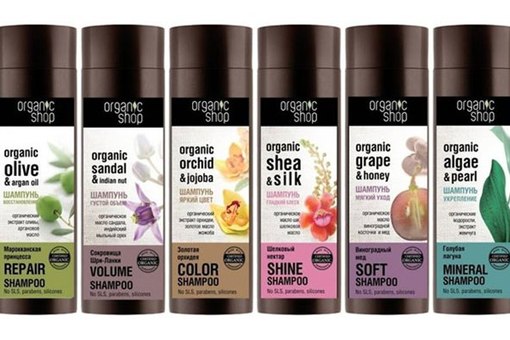
The composition of this cosmetics includes natural ingredients that ensure safety for the health and beauty of curls. All shampoos of this brand have a wonderful aroma, but for each case there is a product - the range is quite wide. Many are also pleased with the low cost of the products.
- Grandma Agafya's recipes

Another Russian manufacturer of sulfate-free shampoos. The products are additionally enriched with extracts of medicinal plants and herbal infusions; for each problem you can choose the appropriate option - there are shampoos for weakened and colored strands, against hair loss and dandruff, to add volume or shine to curls. Reviews about this brand range from enthusiastic to negative, but most of the negative emotions are related to the fact that the hair takes time to get used to such organic cosmetics.
Many foreign manufacturers have long paid attention to safe cosmetics; among them you can find many brands that produce sulfate-free shampoos. The list is quite wide; let’s look at the most common series.
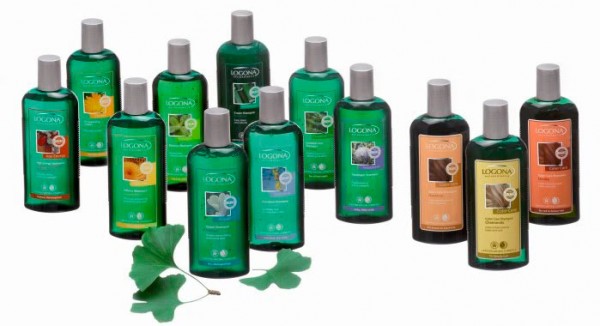
The products of this brand are marked with many certificates guaranteeing quality and safety. Shampoos are intended not only for gentle care of curls, but can also be used as medicinal preparations, with their help you can solve the problem of brittle hair or dandruff, and improve the condition of oily or dry hair. Many users note that after using this cosmetics, their hair becomes less dirty and they have to wash it less often.
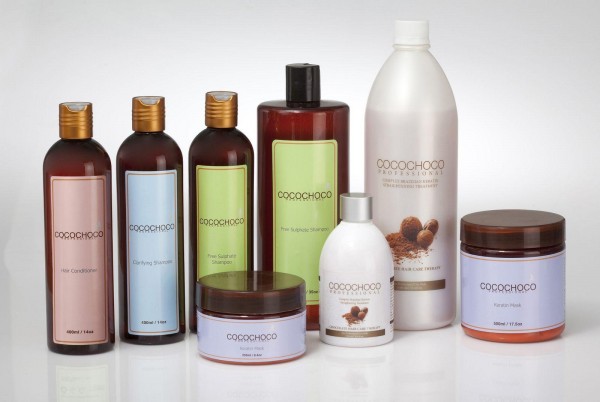
Cosmetologists and hairdressers recommend using sulfate-free shampoos after keratin straightening or hair restoration. The products in this series are designed specifically for this case; they carefully cleanse curls and help consolidate the results of such procedures. The products contain useful plant extracts and are supplemented with keratin.
- Aveda
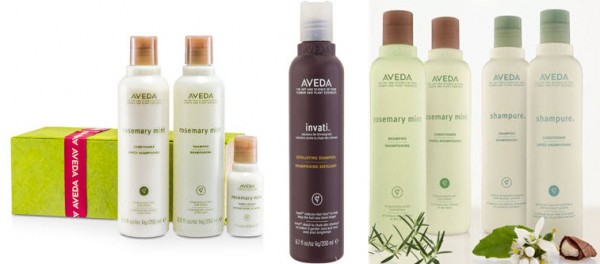
The composition of these shampoos is completely natural and does not include sulfates; the products gently cleanse the scalp, maintaining the health of the curls. Many reviews point to the only drawback - cosmetics from this manufacturer are sometimes difficult to purchase, since they are sold through specialized retail outlets.
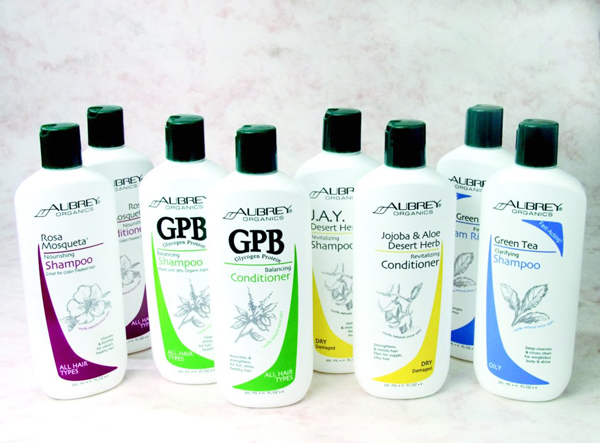
Every person strives not only to look attractive, but also to use only the safest and most natural products to maintain a beautiful appearance. In modern stores and pharmacies you can find on the shelves thousands of types of shampoos suitable for different types hair and scalp. When choosing a washing product, experts recommend paying special attention to the content of sulfates and parabens, which disrupt the natural protective layer on the hair, causing brittleness and rapid contamination. The best sulfate-free hair shampoos, the list of which is presented in this article, will help you safely care for your curls.
Sulfate-free shampoos are gaining popularity among women and men in modern world. This type of cosmetic and hair care products is of interest to everyone who cares about their own health and good health. appearance. After all sulfates are a toxic component many modern inexpensive shampoos, added for greater foaming since the 30s of the 19th century. Sulfate-free types began to gain their place in the cosmetic market at the end of the 20th century, but in such a short time they achieved excellent results.
It is quite easy to distinguish sulfate-free shampoo on the list offered in a pharmacy or store from those that contain these harmful components. You just need to look at the composition indicated on each jar, regardless of the manufacturer and the volume of the container.
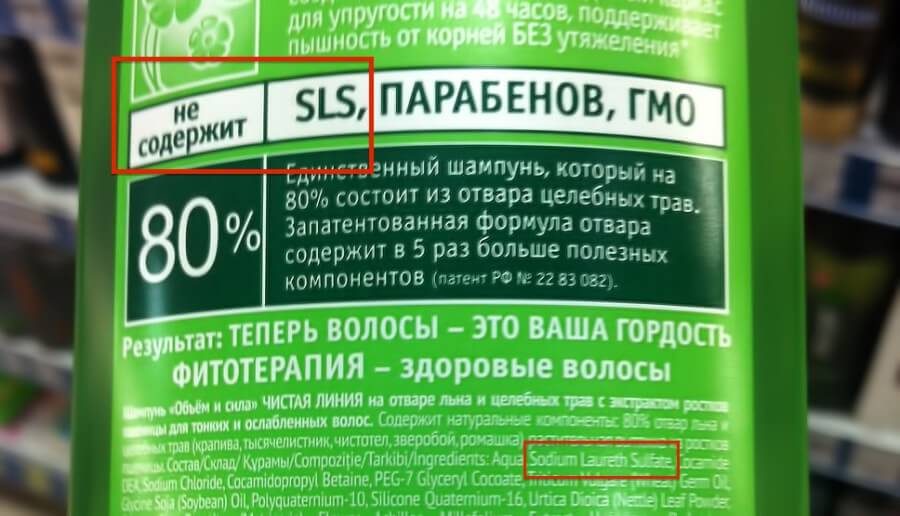
Attention! Manufacturers' deception
If you find the following substances in the list of components of the purchased hair shampoo, then you know that this is a product with sulfates:
- Ammonium Lauryl Sulfate (ALS), which can cause irritation and dryness of the scalp;
- Sodium myreth sulfate SMES, considered a moderately hazardous substance;
- Ammonium laureth sulfate (ALES) Ammonium laureth sulfate, which disrupts the natural protective film on the hair and scalp, impairs the functioning of the sebaceous glands and can cause irritation;
- Sodium Lauryl Sulfate (SLS) Sodium Lauryl Sulfate, which is moderately dangerous and can only cause problems if used incorrectly and not properly rinsed off.
Of course it's not full list sulfates and parabens in modern shampoos, but only the most aggressive and dangerous components. There are also more delicate surfactants that are less harmful to the scalp and hair. For example, Sodium laurel sulfoacetate - LSA-F, made from coconut and palm oil, or Polyglyceryl-3 palmitate - Polyglyceryl-3 palmitate, produced using modern technologies from glycerin with palm oil. But even such delicate components can cause harm.
The list of main advantages of using sulfate-free shampoos includes:
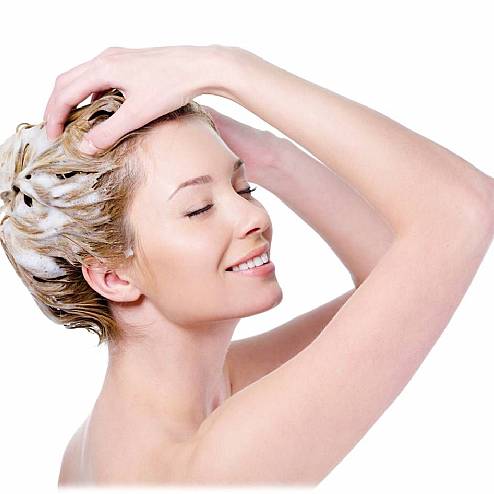
Sulfate-free shampoos are suitable for all hair types, but they are especially beneficial for people with colored, dry, often blow-dryed or straightened hair, as well as damaged curls. Also, such products are best used for children with thin and delicate skin.
Important! Special attention It is necessary to pay attention to the choice of baby shampoo. It is desirable that it also does not contain sulfates, parabens and other harmful substances, and does not have a pronounced odor or rich color.
Important! Particular attention should be paid to the choice of baby shampoo. It is desirable that it is also sulfate-free for hair and does not contain other harmful substances in the list of ingredients, does not have a pronounced odor and rich color.
List of the best sulfate- and paraben-free hair shampoos and their prices
Today on the shelves of stores and pharmacies you can find a wide variety of natural shampoos without harmful chemical additives, and at an affordable price. Here is a list of the most popular sulfate-free and paraben-free hair products, indicating their approximate cost, main features and disadvantages.
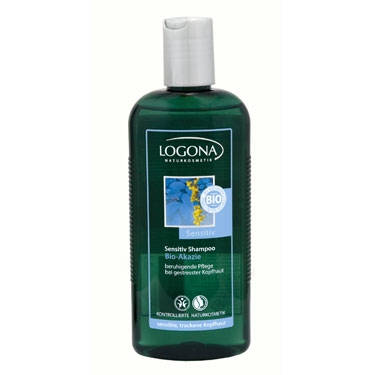
Important! This is not a complete list of sulfate-free shampoos. Each product has its own application and composition, so before first use, carefully read the manufacturer’s instructions and conduct a sensitivity test to exclude an allergic reaction.
Features of application
We are so accustomed to chemical shampoos with sulfates and parabens that we can’t even imagine our lives without them. Indeed, these products can provide fullness and volume, quickly remove impurities and sebum, and are relatively inexpensive compared to their sulfate-free varieties.
After the first use, shampoos without sulfates and parabens, the list of which is listed above, may cause a reverse reaction. You will notice that At first, the hair will become thin, dull, lifeless, and lacking additional volume.. But don't be afraid. All artificial additives were removed from the hair and it became clean from surfactants and other chemicals. Getting used to a new sulfate-free shampoo usually takes 2-3 weeks, sometimes a month. After this period of regular use of a new product from our list, your hair will again gain volume, elasticity, softness, become less dirty, shine and shimmer in the sun.
The use of shampoos without sulfates and parabens also has its own characteristics:

The only contraindications to the use of sulfate-free shampoos are:
- seborrhea and increased activity of the sebaceous glands on the scalp;
- individual intolerance to components from the list.
Everyone else will only benefit from such hair and scalp care. In addition, special types of natural shampoos are produced, designed for oily hair. Therefore, with the right approach, you can always choose a sulfate-free hair wash that is as safe and effective as possible.
As you can see, sulfate-free shampoos are not only fashion trend, but also the desire to keep your hair healthy and beautiful even while leading a familiar urban lifestyle with its constant smog, unfavorable environmental conditions and other negative factors. Carefully study the list of product components before purchasing and do not unconditionally believe the bright inscriptions on the label and in advertising videos, for example, the words “organic” and “natural” do not guarantee the absence of sulfates, parabens, dyes, and fragrances. And before the first use, be sure to do a hypersensitivity test to the components of the sulfate-free product. If you have any problems or questions, please contact a trichologist for help. He will help you choose the most suitable shampoo that will cope with its task and make your hair strong and healthy.
When a little man is born, the parents try in various ways protect him from this aggressive world. Now he needs to choose natural hair care products for his skin. In this case, it is unacceptable to use cosmetics with sulfates and parabens. Otherwise, it may lead to allergies.
Today, shampoos for small children are full of their wide range. But here's how to choose the best quality one. The secret is simple - pay attention to the fact that your composition does not contain sulfates and parabens. Below you will find a list of such shampoos.

This type is often used today by parents to care for their child’s hair. When developing it, experts used natural ingredients. These include lavender, ylang-ylang, and grape seed oil. The action of these products is aimed at moisturizing the scalp and providing the strands with useful components.
Wakodo

This cosmetic product has a gentle effect on the delicate scalp. Ideal for newborns. It is impossible to find parabens, sulfates, fragrances and dyes in its composition. After using it, the hair becomes silky and soft to the touch.
A - Derma Primalba
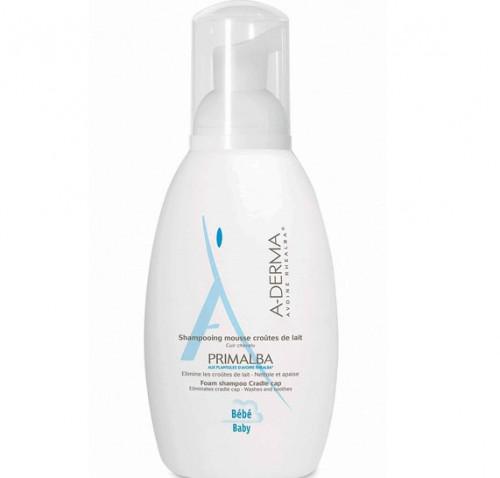
This cosmetic product has a calming effect. With its regular use, it is possible to cleanse the baby’s scalp, eliminating milk crusts. Castor oil was used in the development of this baby shampoo. Its role is to activate hair growth and saturate it with useful components.
Mommy Care
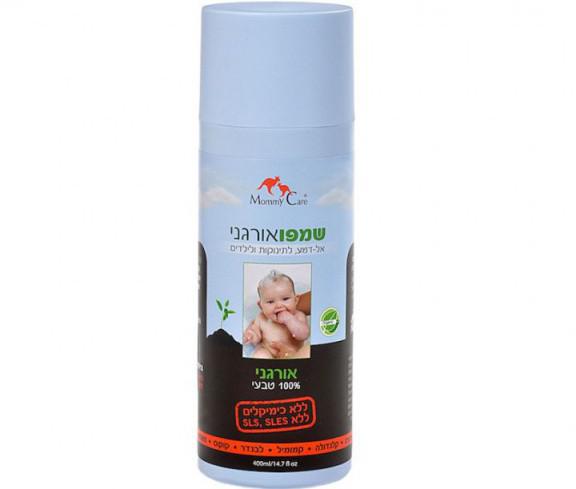
It is also worth paying attention to Bübchen children's cosmetics, namely its range and cost. All information is described in detail in this
But what it is, you can find out from the contents in this article.
You can read what is the best children's cosmetics for girls in a suitcase
Baby shampoos for children should consist exclusively of natural ingredients. This is very important point which parents should take into account when choosing this cosmetic product. Only if it is completely natural will you be able to confidently use the chosen product and not worry about the condition of your child’s skin and hair.


